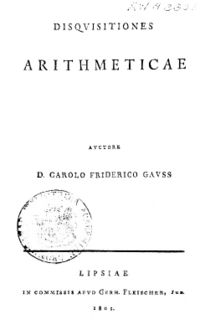Fundamental theorem of arithmetic

The fundamental theorem of arithmetic says that every number can be broken down into a unique set of prime numbers multiplied together.
Think of a prime number like a special type of number that can only be divided evenly by itself and one. Examples of prime numbers are 2, 3, 5, 7, 11, and so on.
So, let's say we have the number 12. We can break it down into 2 multiplied by 2, multiplied by 3. These are all prime numbers.
The fundamental theorem of arithmetic tells us that we can break down any number this way, and that there is only one unique set of prime numbers that can be multiplied together to get that number.
For example, the number 24 can be broken down into 2 multiplied by 2, multiplied by 2, multiplied by 3. Notice how we used 2 as a factor three times, and 3 as a factor once. This is the unique set of prime numbers that make up the number 24.
This theorem is important because it helps us understand how numbers work and can be used in a lot of different types of math problems.
Think of a prime number like a special type of number that can only be divided evenly by itself and one. Examples of prime numbers are 2, 3, 5, 7, 11, and so on.
So, let's say we have the number 12. We can break it down into 2 multiplied by 2, multiplied by 3. These are all prime numbers.
The fundamental theorem of arithmetic tells us that we can break down any number this way, and that there is only one unique set of prime numbers that can be multiplied together to get that number.
For example, the number 24 can be broken down into 2 multiplied by 2, multiplied by 2, multiplied by 3. Notice how we used 2 as a factor three times, and 3 as a factor once. This is the unique set of prime numbers that make up the number 24.
This theorem is important because it helps us understand how numbers work and can be used in a lot of different types of math problems.
Related topics others have asked about:
